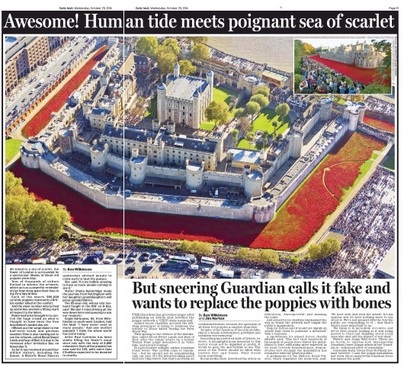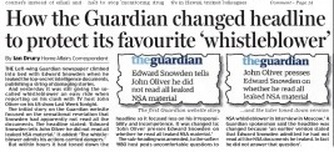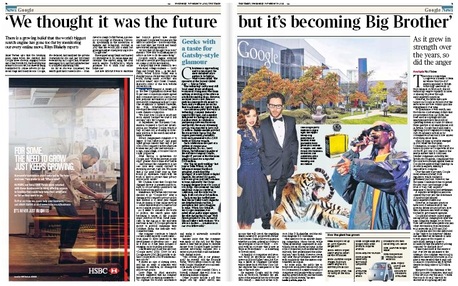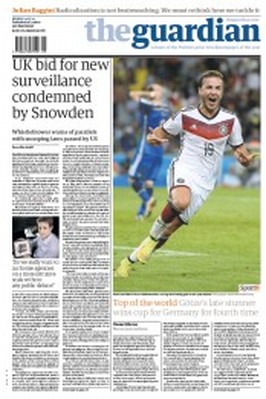Its work transcended the parameters of individual category awards because of its ramifications and impact. The judges said the fact that it polarised opinion even within the press showed how important it was.
It was the view of the judges that it showed courage in producing the most impactful piece of journalism during 2013 with a story of global significance that went to the heart of the debate on press freedom.
The unanimous decision of the judges was that the best of British national newspapers in 2013 was The Guardian.
The Guardian and the reporters have made the most of the material: if you search for "Edward Snowden" on the paper's website, Google will turn up more than 600,000 results (which is not, of course, the same as 600,000 stories). There is the stunning interactive"NSA files decoded", which earned the paper the digital award at the Press Awards and the innovation prize at the British Journalism Awards in December. There are stories, analyses, interviews, debate, commentary, links to books - masses of them.
Oh yes, and there was that Pulitzer Prize. And the European Press Award. And the Orwell Prize. And the Paul Foot award. And the Right Livelihood award....
But as the Press Awards judges noted last spring, Edward Snowden's leaks polarised public opinion and the newspaper industry.

Over recent months, the Mail has seized every opportunity to attack the Guardian - examples include a Saturday essay by Stephen Glover on Nick Davies - "the man who did for the British Press" - and even a dig over an art critic who dared to express a contrary opinion on the Tower of London poppies. Last week a leader about Nick Clegg's call for a "public interest" defence for journalists who wind up in court turned into an attack on the Guardian and its "almost psychotic hatred of a commercially viable free press".
Today the paper leads on a Snowden television interview in which he avoids answering questions about whether he had read all the documents he leaked. The tone of the story leaves the reader in no doubt of the Mail's opinion of Snowden:
Traitor Edward Snowden has revealed he did not read all the top-secret intelligence documents he leaked – a move which put lives at risk from terrorists. In a television interview the fugitive squirmed as he admitted only ‘evaluating’ the files stolen from GCHQ and the US National Security Agency.
The Mail leader writers are again called into action to opine that the paper is a passionate defender of free speech, but that this has to be balanced against public safety. A view with which few would take issue. But, as ever, it has to be coupled with a swipe at the Guardian and its "supreme arrogance".
First, why is the Mail splashing on this story, other than as a vehicle with which to attack a paper that it despises? Do its readers care? A former Mail Online writer who contacted SubScribe after the James King "My year of ripping off the web" blog noted that she had never seen any news organisation so influenced by readers' whims. Stories on the website's home page were moved up and down according to the number of clicks, she said. As I write this, the Snowden story does not feature on the home page at all. And I have scrolled up and down three times to make sure.
Second, why did the Guardian not publish anything in its print edition on the Snowden interview? For the past two years, his every utterance has been deemed newsworthy - the paper even splashed on his opinion of proposed British surveillance laws. But while this latest story appears online, it is nowhere to be found in the newspaper.
This spat is hugely entertaining for journalists. But in their coverage - and non-coverage - of this story, both papers have been following their own agendas without any regard for the reader.
And that is unforgivable.















 RSS Feed
RSS Feed


